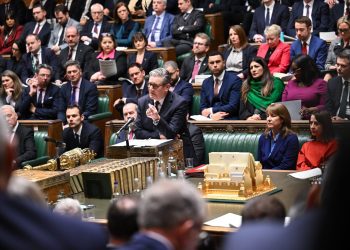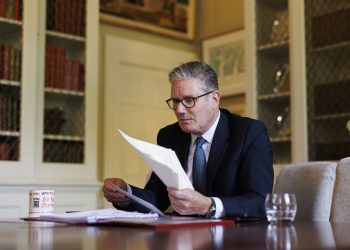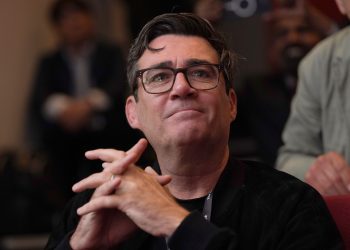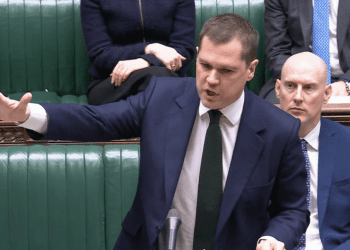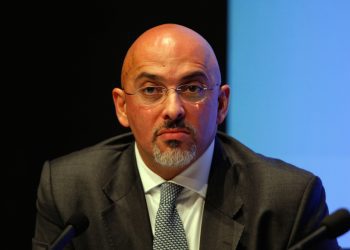I’ll admit, I haven’t always been the Global Fund’s biggest fan. As a public health consultant working in international development, I used to worry it was too narrowly focused on individual diseases. But over time, I’ve seen the great work it has done – taking large amounts of donor funding and putting it to excellent use, resulting in serious reductions in HIV, tuberculosis and malaria. At the same time, it has evolved to invest in the health systems that make lasting progress possible, showing that we cannot tackle these three scourges in isolation, but must also strengthen the systems that deliver care.
So when the UK announced a 15% reduction of its pledge – from £1bn in 2022 to £850m – my reaction was one of disappointment. Coming on top of a 30% cut in the previous funding round, it means the UK’s contribution has fallen from around £1.46 billion to £850 million in just six years. This isn’t just a line in a budget – it has real consequences for people’s lives and health. A cut of this scale could mean 220,000 fewer lives saved, 270,000 fewer people receiving HIV treatment, 240,000 fewer people accessing tuberculosis care, and 20 million fewer people protected from malaria. Behind each of these numbers are mothers, children and communities whose futures are put at risk by a step back in funding.
But this cut also undermines the health systems the Global Fund has helped strengthen. Systems that keep us all safe – from London to Lahore, from Newcastle to Nairobi. Trained health workers, functioning laboratories and reliable supply chains aren’t just vital for HIV, TB and malaria; they are the backbone of pandemic preparedness and global health security. When these systems are weakened anywhere, everyone is at greater risk of new outbreaks, emerging infections and the spread of disease across borders.
The UK has a particular responsibility in this regard. As a founding member and long-time partner of the Global Fund, and co-host of this year’s replenishment summit alongside South Africa, we are uniquely positioned to lead by example. This responsibility demands a strong financial pledge: stepping back now, even slightly, sends the wrong signal at a moment when decisive leadership is needed to galvanise other donors and protect the progress we have fought so hard to achieve.
So it’s hard not to see this announcement as a missed opportunity. A missed opportunity to save more lives from AIDS, TB and malaria. A missed opportunity to strengthen the very health systems that deliver care and protect us against future pandemics. And a missed opportunity to demonstrate strong leadership at a time when such leadership is strikingly absent.
However, there are positives to take. Whilst it is a cut of 15%, this £850 million pledge comes amid a 40% cut to the UK aid budget, which has forced officials into incredibly difficult decisions. The government repeatedly recognises that the Global Fund is a best buy in development, and so prioritising funding in this context is a welcome step. The evidence is clear – this money will be well spent.
Since 2002, the Global Fund partnership has saved 70 million lives and reduced the combined death rate from AIDS, TB and malaria by 63%. Last year alone, 25.6 million people were on HIV treatment, 7.4 million received care for tuberculosis and 162 million insecticide-treated mosquito nets were distributed. These are tangible, lifesaving results, showing that even a reduced pledge can deliver enormous impact.
There is still a clear opportunity. The biggest leaps in progress against AIDS, TB and malaria have come through collective action – through multilateral partnerships like the Global Fund. The necessity of these partnerships is obvious: COVID-19 showed us that outbreaks anywhere can affect people everywhere. The phrase ‘none of us are safe until we are all safe’ perfectly captures our interconnectedness and mutual responsibility when it comes to global public health.
With the Global Fund aiming to raise US$18 billion for its next three-year cycle, there is still a chance to save 23 million additional lives and prevent 400 million new cases of HIV, TB, and malaria. As attention turns to the replenishment summit in Johannesburg on 21 November, prime minister Keir Starmer’s attendance will send a clear signal of the UK’s continued commitment and help spur other donors to step up. The UK, as co-host of this year’s replenishment, has a particular responsibility to ensure its reduced pledge does not set a precedent for other donors, and to identify ways to supplement it.
By doing so, it would reinforce the largest multilateral investment in health systems, reaching both governments and communities where care is delivered and outbreaks are first detected. Strong funding now will not only protect lives today, but also ensure that health systems remain resilient, communities are safer, and the UK continues to play a leading role in advancing global health.
Politics.co.uk is the UK’s leading digital-only political website. Subscribe to our daily newsletter for all the latest news and analysis.
The post Beccy Cooper MP: ‘The UK’s Global Fund pledge is a missed opportunity’ appeared first on Politics.co.uk.




















